Demolition Contractors Haddonfield
Top Demolition Services in Haddonfield
Receive 3 FREE Building Demolition quotes for your project today! Compare profiles, reviews, accreditations, portfolio, etc... and choose the best offer.
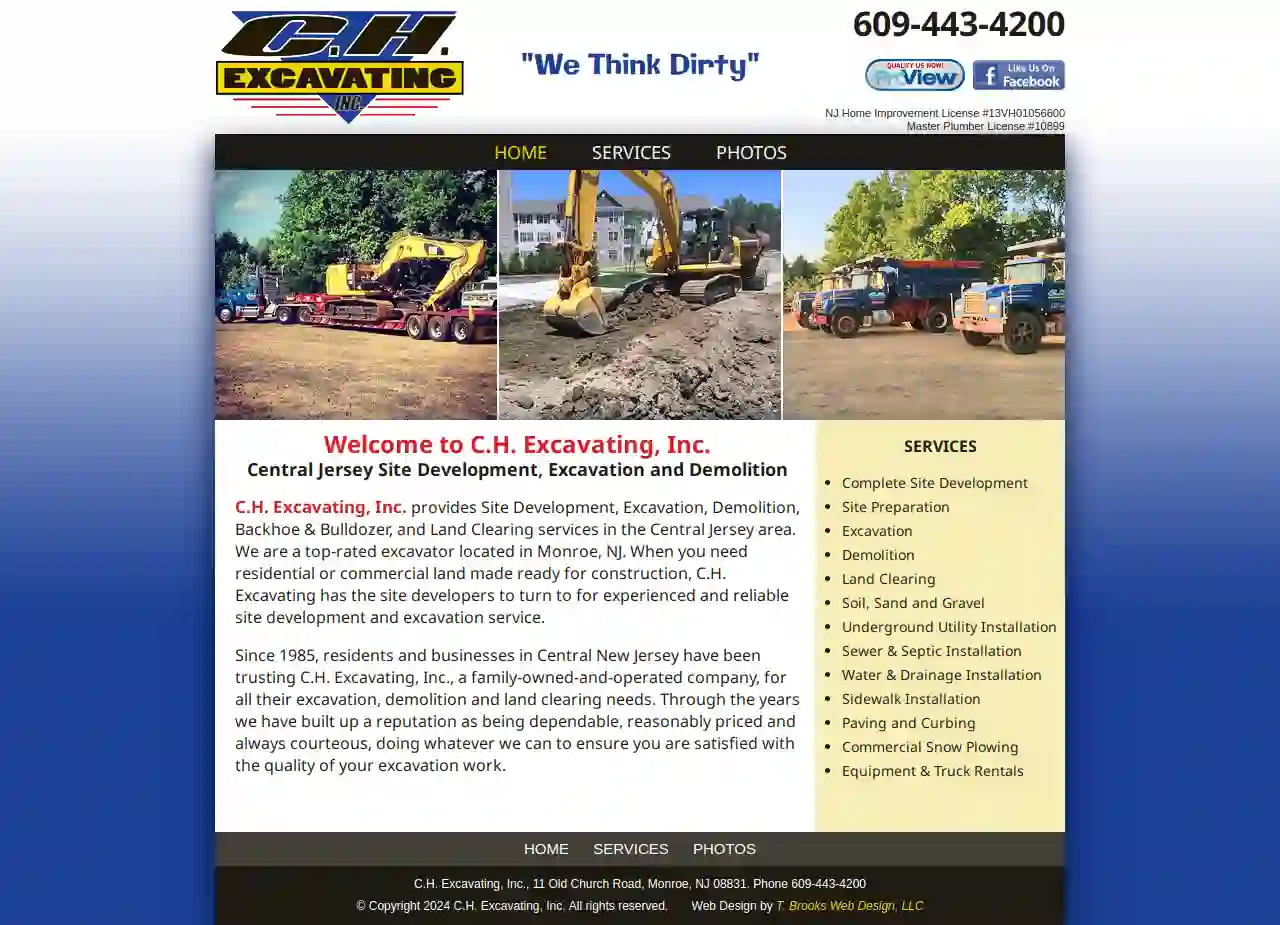
C H Excavating Contractors Inc
53 reviews11 Old Church Road, Monroe, 08831, USWelcome to C.H. Excavating, Inc. Central Jersey Site Development, Excavation and Demolition C.H. Excavating, Inc. provides Site Development, Excavation, Demolition, Backhoe & Bulldozer, and Land Clearing services in the Central Jersey area. We are a top-rated excavator located in Monroe, NJ. When you need residential or commercial land made ready for construction, C.H. Excavating has the site developers to turn to for experienced and reliable site development and excavation service. Since 1985, residents and businesses in Central New Jersey have been trusting C.H. Excavating, Inc., a family-owned-and-operated company, for all their excavation, demolition and land clearing needs. Through the years we have built up a reputation as being dependable, reasonably priced and always courteous, doing whatever we can to ensure you are satisfied with the quality of your excavation work.
- Services
- Why Us?
- Gallery
Get Quote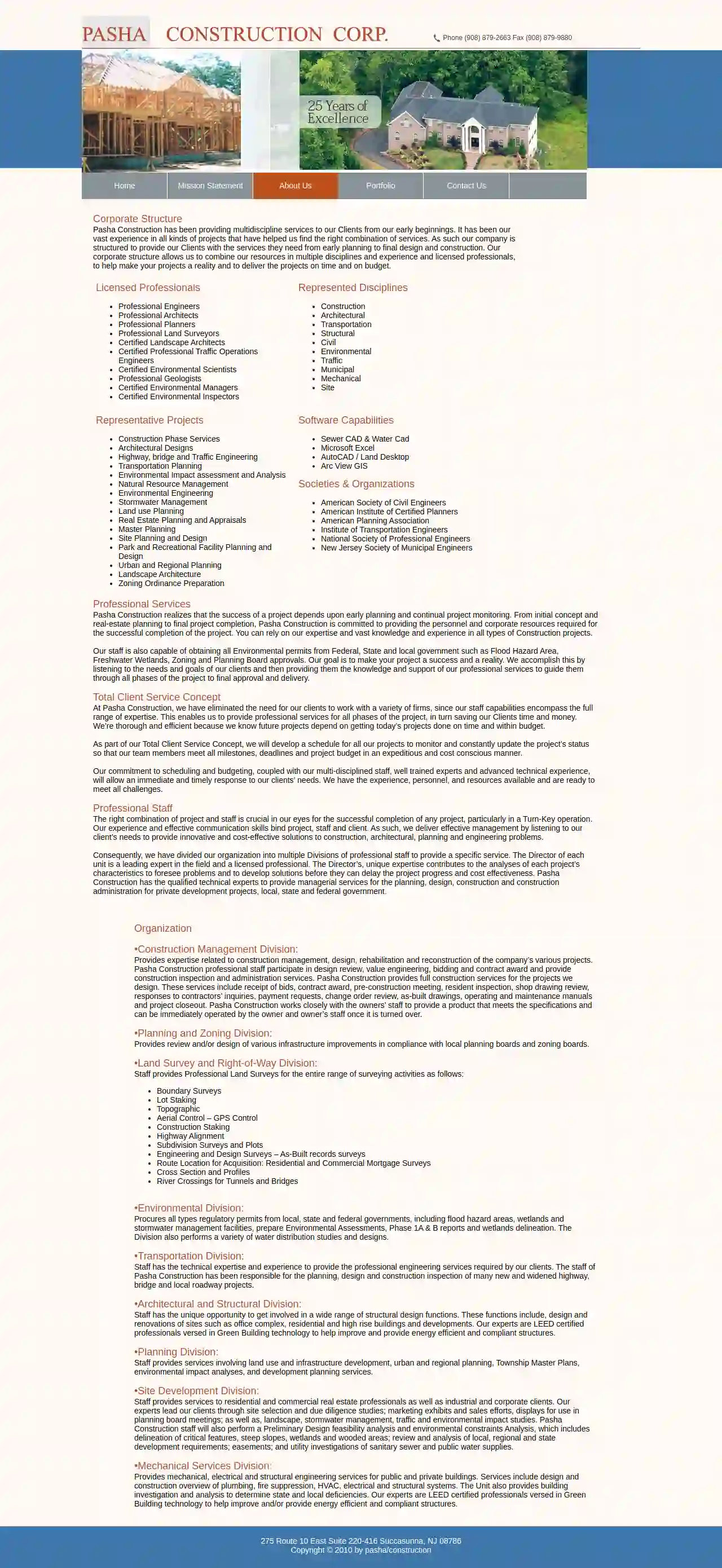
Pasha Construction
275 Route 10 East Suite 220-416, Succasunna, 08786, USAbout Us Pasha Construction has been providing multidiscipline services to our Clients from our early beginnings. It has been our vast experience in all kinds of projects that have helped us find the right combination of services. As such our company is structured to provide our Clients with the services they need from early planning to final design and construction. Our corporate structure allows us to combine our resources in multiple disciplines and experience and licensed professionals, to help make your projects a reality and to deliver the projects on time and on budget. Licensed Professionals Professional Engineers Professional Architects Professional Planners Professional Land Surveyors Certified Landscape Architects Certified Professional Traffic Operations Engineers Certified Environmental Scientists Professional Geologists Certified Environmental Managers Certified Environmental Inspectors Represented Disciplines Construction Architectural Transportation Structural Civil Environmental Traffic Municipal Mechanical Site Representative Projects Construction Phase Services Architectural Designs Highway, bridge and Traffic Engineering Transportation Planning Environmental Impact assessment and Analysis Natural Resource Management Environmental Engineering Stormwater Management Land use Planning Real Estate Planning and Appraisals Master Planning Site Planning and Design Park and Recreational Facility Planning and Design Urban and Regional Planning Landscape Architecture Zoning Ordinance Preparation Software Capabilities Sewer CAD & Water Cad Microsoft Excel AutoCAD / Land Desktop Arc View GIS Societies & Organizations American Society of Civil Engineers American Institute of Certified Planners American Planning Association Institute of Transportation Engineers National Society of Professional Engineers New Jersey Society of Municipal Engineers Professional Services Pasha Construction realizes that the success of a project depends upon early planning and continual project monitoring. From initial concept and real-estate planning to final project completion, Pasha Construction is committed to providing the personnel and corporate resources required for the successful completion of the project. You can rely on our expertise and vast knowledge and experience in all types of Construction projects. Our staff is also capable of obtaining all Environmental permits from Federal, State and local government such as Flood Hazard Area, Freshwater Wetlands, Zoning and Planning Board approvals. Our goal is to make your project a success and a reality. We accomplish this by listening to the needs and goals of our clients and then providing them the knowledge and support of our professional services to guide them through all phases of the project to final approval and delivery. Total Client Service Concept At Pasha Construction, we have eliminated the need for our clients to work with a variety of firms, since our staff capabilities encompass the full range of expertise. This enables us to provide professional services for all phases of the project, in turn saving our Clients time and money. We’re thorough and efficient because we know future projects depend on getting today’s projects done on time and within budget. As part of our Total Client Service Concept, we will develop a schedule for all our projects to monitor and constantly update the project’s status so that our team members meet all milestones, deadlines and project budget in an expeditious and cost conscious manner. Our commitment to scheduling and budgeting, coupled with our multi-disciplined staff, well trained experts and advanced technical experience, will allow an immediate and timely response to our clients’ needs. We have the experience, personnel, and resources available and are ready to meet all challenges.
- Services
- Why Us?
- Gallery
Get Quote
Structure Tone LLC
56 reviewsWoodbridge, USWho We Are We are a family of companies building amazing spaces across the US, Canada, UK and Ireland. History Founded in 1971, we have grown into an organization made up of over 4,700 employees across 54 offices.
- Services
- Why Us?
- Gallery
Get Quote
Next Level Excavation
54 reviewsEgg Harbor Township, USFamily owned and operated Bring your projects to the Next Level Who we are Doug is the owner and operator of Next Level Excavation. Doug has over 18 years experience in all types of excavation. From small residential projects to large commercial projects we have you covered! Safety is our standard. All employees are O.S.H.A. Certified Fully licensed and insured Over 18 years of experience Services Excavator and skid steer services Brush removal Bulk trash hauling Concrete removal Drainage systems Fence/deck/shed demolition and removal Trenching of any kind Stone driveways Grading Dump trailer rental Material hauling Much more… Prompt and Reliable Satisfaction Guaranteed
- Services
- Why Us?
- Our Team
- Gallery
Get Quote
Landworx, LLC
52 reviewsBrick, USWelcome to Landworx, LLC Landworx, LLC is a complete land maintenance and management company, that also performs demolition, excavation, site-work and tree service work. We are located in Columbia, Mississippi, but services a radius of 40-50 miles from our home base. With over 30 years of service to customers throughout the area, you will see the professional difference from the start in dealing with Landworx, LLC. Our services range from homeowners who need a tree removed or an old building removed to big corporations that need land cleared, cleaned-up or right of ways maintained. We also serve contractors, builders and developers with our excavating/site work services. Browse our website to see the services we offer, stop back to read our articles and by all means contact us if you have a question or service you need done right the first time and on-time. Thank you for visiting, Matt Riley Founder/Owner Landworx, LLC
- Services
- Why Us?
- Gallery
Get Quote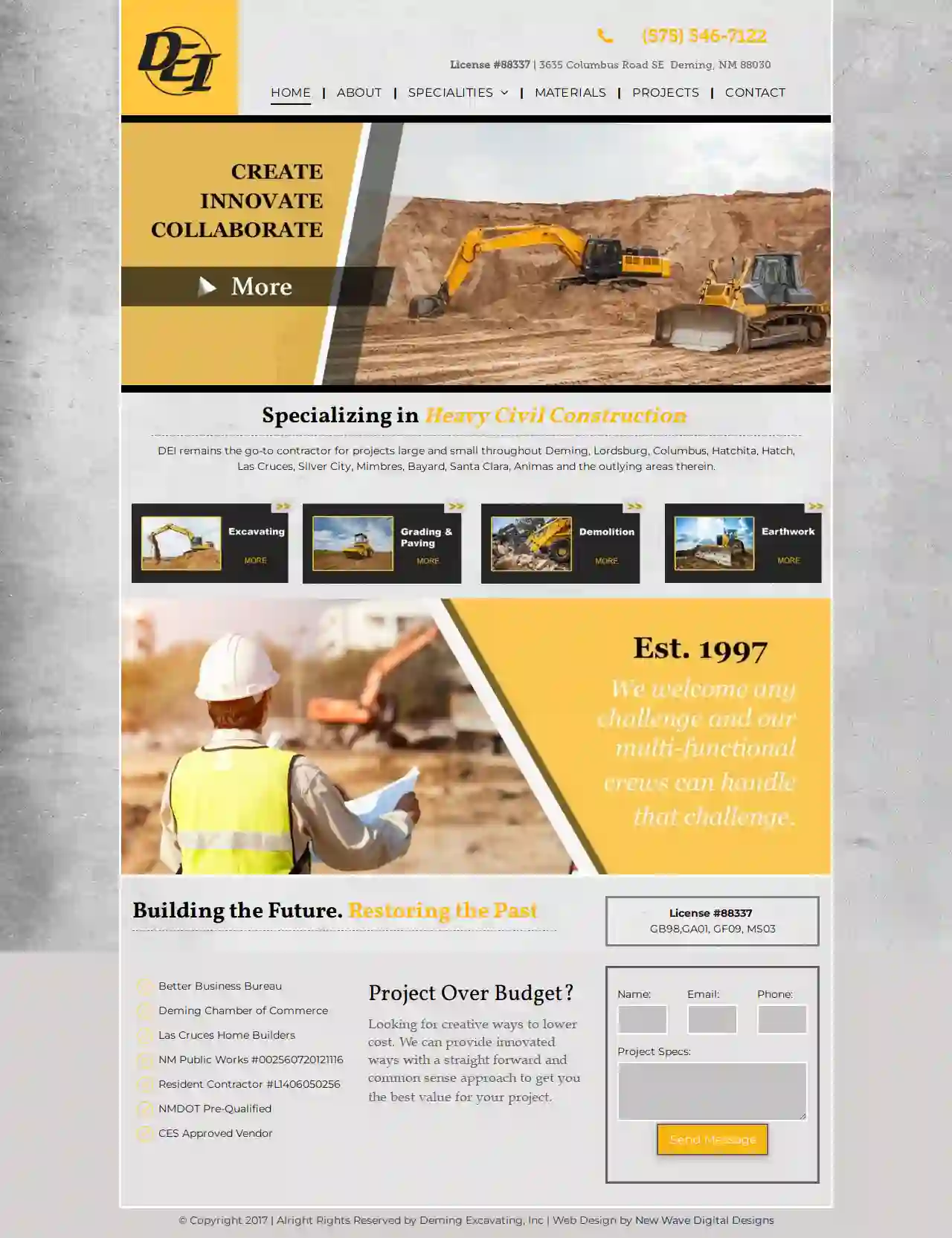
Deming Excavating, Inc.
4.712 reviews3635 Columbus Road SE, 3635 Columbus Rd SE, Deming, 88030, USAbout Deming Excavation, INC. Specializing in Heavy Civil Construction, our multi-faceted experience includes demolition, hauling, earthwork, mass grading, fine grading, wet utilities, asphalt paving, rehabilitation and maintenance, and concrete. We are a complete site development contractor. Our skilled management team is familiar in dealing with private and public agencies. We are prepared to deliver fast, professional, and on-budget services to each and every one of our clients. We believe our commitment to our customers and our work is what sets us apart and makes us the top choice in Southern, New Mexico. Building the Future. Restoring the Past Project Over Budget? Looking for creative ways to lower cost. We can provide innovated ways with a straight forward and common sense approach to get you the best value for your project.
- Services
- Why Us?
- Gallery
Get Quote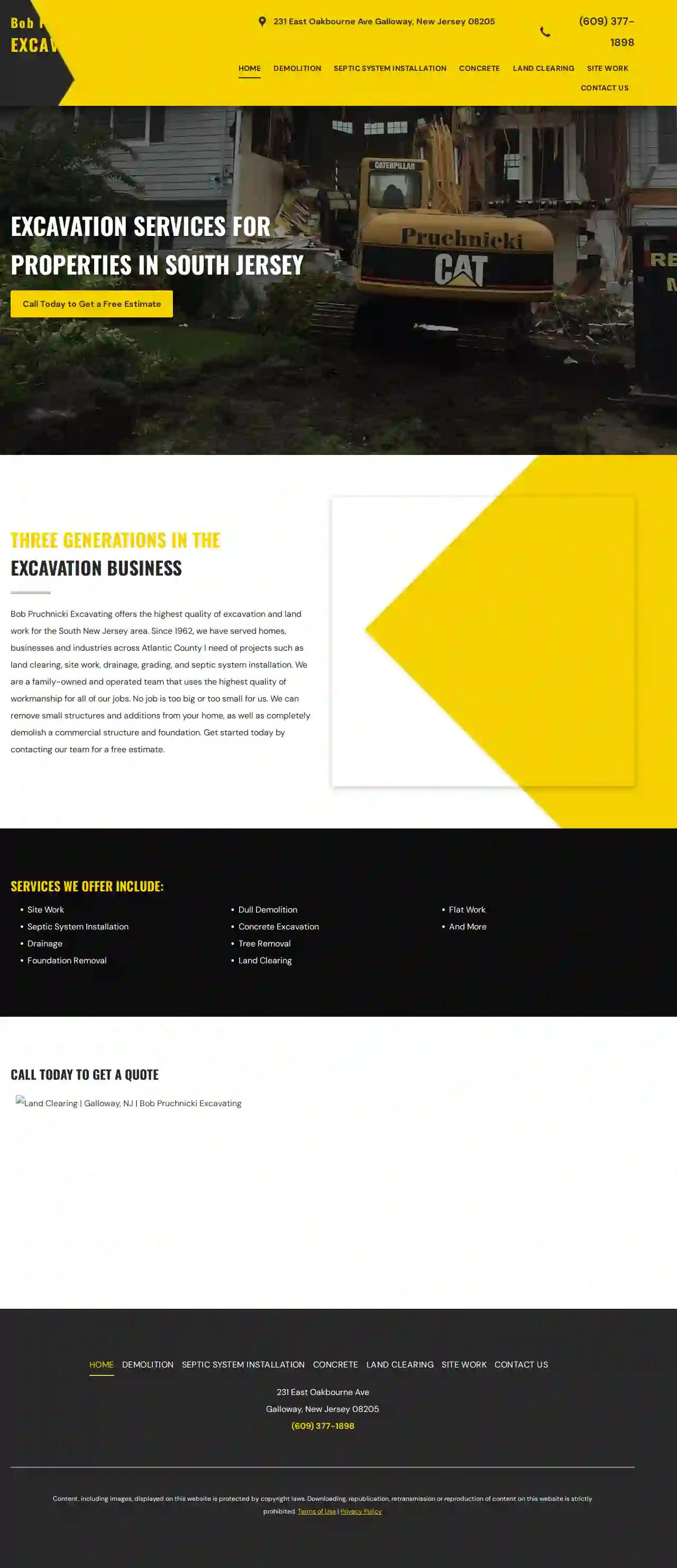
Bob Pruchnicki Excavating
231 East Oakbourne Ave, Galloway, 08205, USExcavation Services for Properties in South Jersey Bob Pruchnicki Excavating offers the highest quality of excavation and land work for the South New Jersey area. Since 1962, we have served homes, businesses and industries across Atlantic County in need of projects such as land clearing, site work, drainage, grading, and septic system installation. We are a family-owned and operated team that uses the highest quality of workmanship for all of our jobs. No job is too big or too small for us. We can remove small structures and additions from your home, as well as completely demolish a commercial structure and foundation. Get started today by contacting our team for a free estimate.
- Services
- Why Us?
- Gallery
Get Quote
Bencardino Excavating Inc
54 reviews1423 Wells Drive, Bensalem, 19020, USGet the job done right with Bencardino Excavating! See How Bencardino Excavating Projects Are Setting The Standard... A long track record of successful projects, larger footprint excavating and sitework capabilities, competitive pricing, a commitment to working safely, and quality workmanship. When you hire Bencardino Excavating with our ability to handle all aspects of your sitework, and possessing decades of experience, you will keep your project on schedule and eliminate delays and change orders that are common when hiring multiple contractors for your project. An Excavating And Sitework Contractor You Can Count On... Bencardino Excavating has over thirty years of experience providing diversified, highly dependable excavating and sitework contracting for our clients in Philadelphia, and the Delaware Valley. As an excavating and sitework contractor, our capabilities allow us to handle all aspects of your project, large or small in a safe, professional, and organized way. Bencardino Excavating has a fleet of heavy-construction equipment, a team of over 140 professionals and the experience to see through any sitework project from start to finish. Our team will bring your project in on time and within budget. Bencardino’s capabilities include: demolition, clearing, excavation, grading, underground utility installation for fire, storm, water and sewer, concrete, paving and emergency services.
- Services
- Why Us?
- Gallery
Get Quote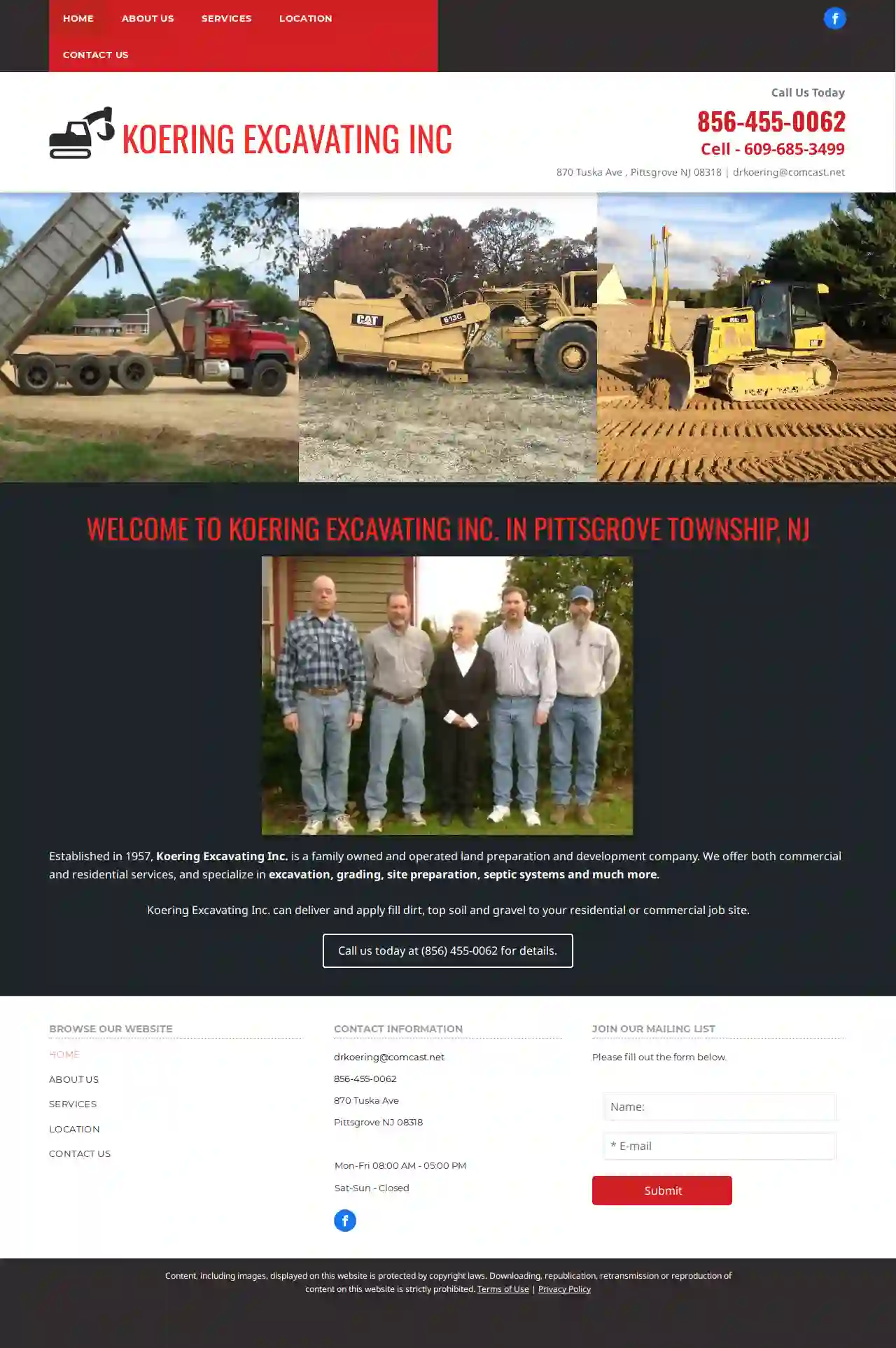
Koering Excavating Inc.
870 Tuska Ave, Pittsgrove, 08318, USAbout Koering Excavating Inc. Established in 1957, Koering Excavating Inc. is a family-owned and operated land preparation and development company. We take pride in our 59 years of service to the greater Pittsgrove Township area. With an eye for detail and our focus on safety, we offer our services to our residential, commercial, and municipal community. We have the industry experience and equipment to get the job done safely and on time the first time. We offer both commercial and residential services, and specialize in excavation, grading, site preparation, septic systems, and much more. Koering Excavating Inc. can deliver and apply fill dirt, top soil, and gravel to your residential or commercial job site. Our Heavy Duty Equipment Includes: Front End Loader Bull Dozier Dump Truck Back Hoe Excavator Plainer
- Services
- Why Us?
- Gallery
Get Quote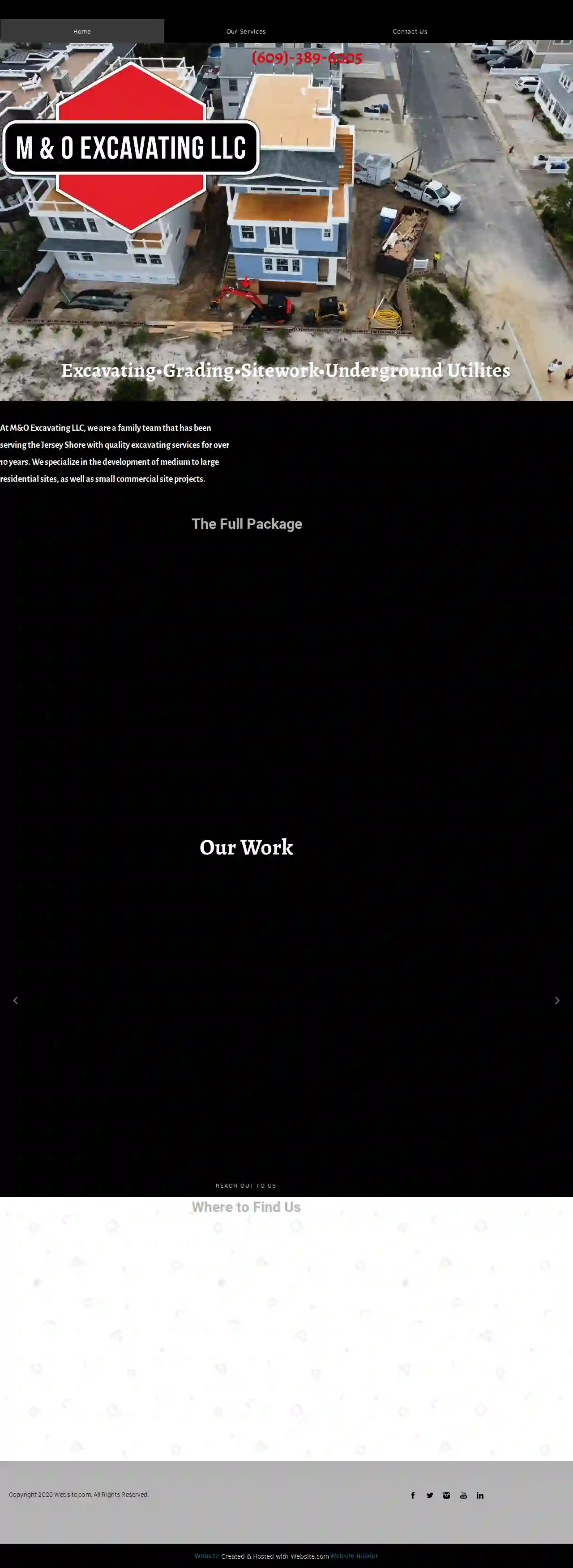
M&O Excavating LLC
51 reviewsPO Box 185, Manahawkin, 08050, USAt M&O Excavating LLC, we are a family team that has been serving the Jersey Shore with quality excavating services for over 10 years. We specialize in the development of medium to large residential sites, as well as small commercial site projects. The Full Package REACH OUT TO US Where to Find Us Excavating•Grading•Sitework•Underground Utilites Our Work
- Services
- Why Us?
- Gallery
Get Quote
Over 22,076+ Excavation Businesses registered
Our excavation companies operate in Haddonfield and beyond!
ExcavationHQ has curated and vetted Top Excavation Companies arround Haddonfield. Find a top & trustworthy business today.
Frequently Asked Questions About Demolition Contractors
- Feasibility Studies: Assessing the viability and challenges of a demolition project.
- Demolition Planning: Developing demolition plans, including method selection, sequencing, and safety procedures.
- Permitting Assistance: Navigating the demolition permitting process and ensuring compliance with regulations.
- Hazardous Material Surveys: Identifying and managing hazardous materials, such as asbestos and lead paint.
- Cost Estimating: Providing accurate cost estimates for demolition services.
- Project Management: Overseeing the demolition process and ensuring it proceeds as planned.
- Permits and Regulations: Obtain all necessary demolition permits and comply with local building codes and environmental regulations.
- Contracts: Have a clear and comprehensive contract with the demolition contractor outlining the scope of work, payment terms, and liabilities.
- Environmental Laws: Comply with environmental laws regarding hazardous material removal, waste disposal, and pollution control.
- Neighboring Property Rights: Respect neighboring property rights and take measures to prevent damage or disruption to adjacent properties.
- Worker Safety: Adhere to worker safety regulations and provide a safe working environment for demolition crews.
- Experience: Look for companies with a proven track record and years of experience in the demolition industry.
- Licensing and Insurance: Ensure the contractor is properly licensed to operate in your area and carries adequate insurance to protect you from liability.
- Safety Record: Inquire about their safety protocols and accident history. A reputable contractor prioritizes safety.
- References and Reviews: Ask for references from past clients and check online reviews to gauge their reputation and customer satisfaction.
- Professionalism: Choose a company that communicates clearly, provides detailed estimates, and has a courteous and responsive team.
How can I tell if my building contains asbestos?
What is the role of a demolition consultant?
What are the legal considerations for demolition projects?
How do I find a reputable demolition contractor?
How can I tell if my building contains asbestos?
What is the role of a demolition consultant?
- Feasibility Studies: Assessing the viability and challenges of a demolition project.
- Demolition Planning: Developing demolition plans, including method selection, sequencing, and safety procedures.
- Permitting Assistance: Navigating the demolition permitting process and ensuring compliance with regulations.
- Hazardous Material Surveys: Identifying and managing hazardous materials, such as asbestos and lead paint.
- Cost Estimating: Providing accurate cost estimates for demolition services.
- Project Management: Overseeing the demolition process and ensuring it proceeds as planned.
What are the legal considerations for demolition projects?
- Permits and Regulations: Obtain all necessary demolition permits and comply with local building codes and environmental regulations.
- Contracts: Have a clear and comprehensive contract with the demolition contractor outlining the scope of work, payment terms, and liabilities.
- Environmental Laws: Comply with environmental laws regarding hazardous material removal, waste disposal, and pollution control.
- Neighboring Property Rights: Respect neighboring property rights and take measures to prevent damage or disruption to adjacent properties.
- Worker Safety: Adhere to worker safety regulations and provide a safe working environment for demolition crews.
How do I find a reputable demolition contractor?
- Experience: Look for companies with a proven track record and years of experience in the demolition industry.
- Licensing and Insurance: Ensure the contractor is properly licensed to operate in your area and carries adequate insurance to protect you from liability.
- Safety Record: Inquire about their safety protocols and accident history. A reputable contractor prioritizes safety.
- References and Reviews: Ask for references from past clients and check online reviews to gauge their reputation and customer satisfaction.
- Professionalism: Choose a company that communicates clearly, provides detailed estimates, and has a courteous and responsive team.